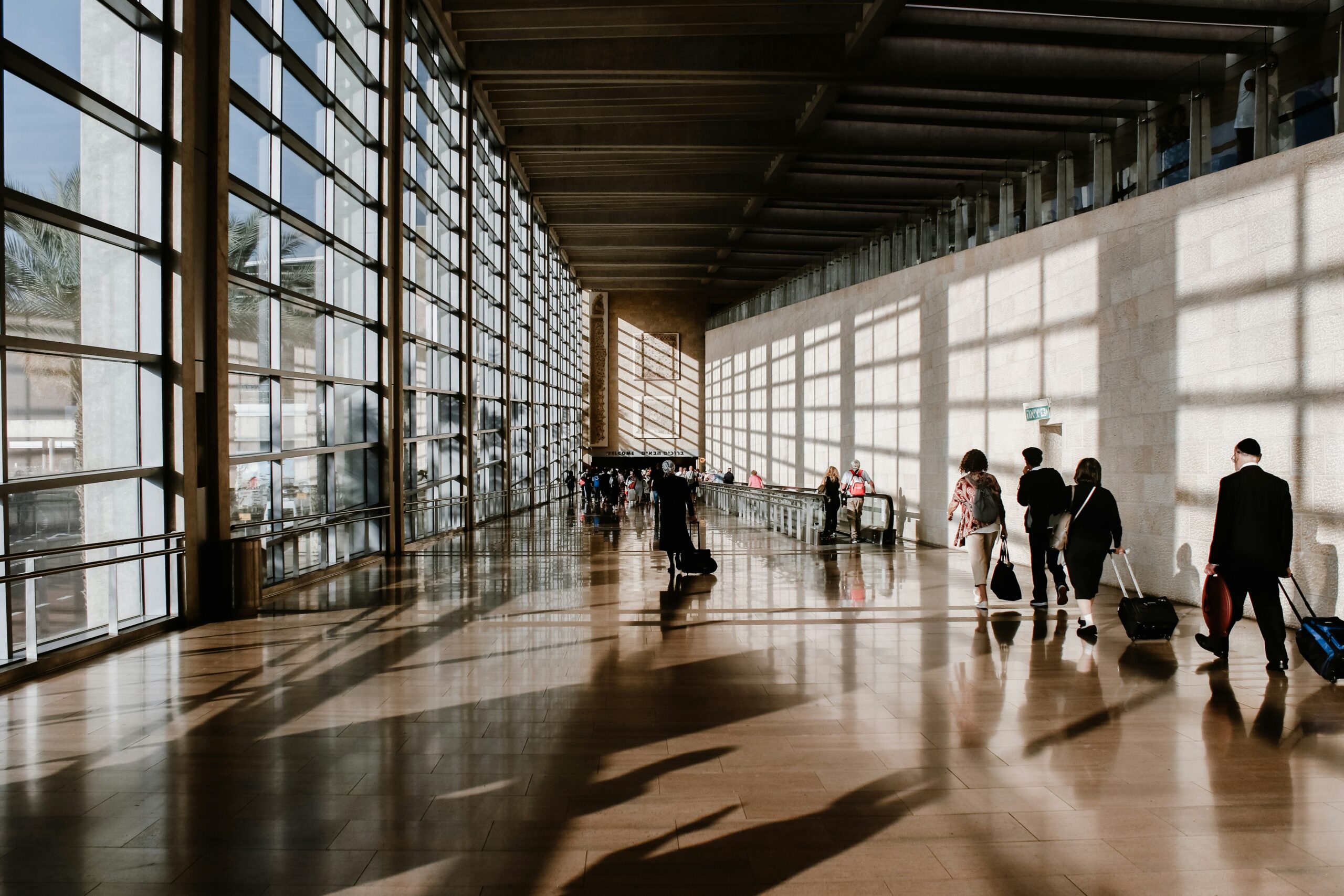Airlines including Delta Air Lines, American Airlines, Southwest Airlines and United Airlines cut their earnings forecasts in recent weeks amid a shifting economy and tensions around trade policies coming to a head.
Consumer confidence has also become an issue, dropping significantly last month and marking the “largest monthly decline since August 2021,” according to Stephanie Guichard, senior economist of global indicators for The Conference Board. Last week, the United States Federal Reserve stated that “uncertainty around the economic outlook has increased,” and in February, Tourism Economics released a scenario analysis that dove into the ramifications should trade wars expand, suggesting a sizable impact on the travel industry.
That report from Tourism Economics, which assumes U.S. President Donald Trump’s administration would implement substantial tariffs on Canada, Mexico and China, also assumes loss in European travel sentiment due to tariffs and apprehension around the handling of Russia in Ukraine.
Subscribe to our newsletter below
“We expect 2025 U.S. inbound visits to decline 5.1% and hotel room demand to decline 0.8%, as compared to 8.8% and 1.1% growth in the baseline, respectively,” it said in the report, predicting international visits to the U.S. in 2025 would be 12.7% below baseline.
Tourism Economics estimated U.S. inbound travel spending would sit 10.9% below the baseline outlook, indicating an estimated $18 billion loss in 2025. And U.S. travel spending (including domestic and inbound spend combined) would come in at 3.7% below baseline, marking an estimated $64 billion loss in spend in 2025.
To date, a handful of countries, including the United Kingdom, Denmark, Finland, Germany and neighboring Canada, have issued warnings to their citizens about traveling to the U.S., citing cases where some European travelers have been detained at U.S. borders.
And last weekend, investment bank TD Cowen questioned in its airline-focused newsletter whether international travel is at risk of “Joining the 2025 Parade of Horribles” before listing current events including canceled flights by a Canadian airline to Nashville due to changing demand and fewer passenger vehicles entering the U.S. from Canada, among others.
With a murky economy, escalating trade wars and concerns spreading in some countries, how concerned should online travel giants be about a potential slowdown in bookings?
Lorraine Sileo, senior analyst and founder of Phocuswright Research, said the uncertainty surrounding the implications of government policies, stock market fluctuations and inflation is leaving travelers cautious.
“Consumer confidence fell in February, so that will have an impact on all types of spending, as will the downsizing of the government workforce and more scrutiny on government travel,” Sileo said. “There is also the threat of travel bans, and already travel companies are seeing some international travelers change their plans.”
Environment is “very much a concern”
The current travel industry dynamic is “very much a concern,” according to Tom Fitzgerald, vice president who leads coverage of airlines at TD Cowen.
“The heightened uncertainty looks to be weighing on consumer and business sentiment. The decline in sentiment could cause consumers to pull back discretionary spending and businesses to forgo investment,” Fitzgerald said.
TD Cowen’s recent newsletter also noted, “We are concerned that the phenomenon we are witnessing in the U.S./Canada transborder market could spread to long-haul international lanes.”
What’s happening now could also plant seeds of a recession in the United States, Fitzgerald said, particularly since this is the time of year during which travelers are booking summer trips. So, regardless of whether the economy contracts, the current environment is a drag on airlines’ peak season.
Jake Fuller, managing director at financial services firm BTIG, said in a note earlier this month that the airline warnings have elevated evolving macro concerns and sparked concern over online travel agencies’ (OTAs) financial outlook.
At the time, though, Fuller didn’t definitively say that OTAs are in trouble given the current economic state.
Recession fears feel very real. But similar panics in each of the last three years turned out to be overreactions and good entry points. That said, OTA multiples have yet to reach the lows seen in those past panics.
Jake Fuller, BTIG
“Not to suggest that OTAs would be immune, but we have yet to see clear signs of a weakening,” he said, referencing trend checks on first quarter room nights, for example.
Fuller wrote that an OTA like Expedia Group might be facing more risk, given it is more heavily U.S.-based, compared to companies such as Airbnb and Booking Holdings that have a broader global presence.
But because the majority of OTAs’ operating expenses fall under marketing, Fuller said the category is better positioned to protect margins than airlines, car rentals, hoteliers or cruise lines if the economy is to turn downward.
“Recession fears feel very real,” Fuller wrote. “But similar panics in each of the last three years turned out to be overreactions and good entry points. That said, OTA multiples have yet to reach the lows seen in those past panics.”
A blip or something major?
It’s not clear whether the economic downturn happening now is an indication of a long-term pattern.
Sileo predicts trends like a lack of consumer confidence could persist most of the year. But she also believes this could be offset by a generally healthy economy and Americans’ tendency to prioritize trips and experiences.
“Perhaps it won’t resonate so much outside the U.S.,” she said. “Yes, there might be a slowdown globally if Americans aren’t traveling as much, but most of the impact would be felt in the U.S. if non-U.S. travelers decide to go elsewhere.”
In Fitzgerald’s opinion, things are still up in the air.
“It depends on what policy changes ultimately get implemented and for how long,” he said.
Positive factors?
Just because the economic environment seems tense now, that doesn’t mean it will stay that way.
Fitzgerald said the current pressure could be calmed by the easing of trade tensions, better-than-anticipated macro data, positive guidance and commentary from airlines on Q1 earnings calls and any indications that discretionary spending is not falling.
And Sileo said it will take months to see the impact of tariffs on prices and consumer pocketbooks. If the stock market bounces back and prices stabilize, she said consumers will start to feel more confident about spending. Lower hotel rates and airfare prices could help, too.
“While it might look like the travel industry is in the crosshairs right now, we can’t underestimate Americans’ passion for travel regardless of economic and political headwinds,” Sileo said.







